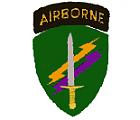
Originally Posted by
Major Strickland
I am amazed that we do not attempt to counter the negativity of US media sources through a campaign of context. If we put our 2,000 KIA in the context of events with similar deaths such as Pearl Harbor, D-Day, or September 11th, then maybe people would see this figure with less astonishment. If we further attempted to put this same figure of 2000 KIA in the context of the 16,000 homicides per year that we have in the US, I trust that they would look even less daunting.
2,000 Dead, in Context - 27 Oct. Op-Ed by Victor Davis Hanson in the NYT:
"...Comparative historical arguments, too, are not much welcome in making sense of the tragic military deaths - any more than citing the tens of thousands Americans who perish in traffic accidents each year. And few care to hear that the penultimate battles of a war are often the costliest - like the terrible summer of 1864 that nearly ruined the Army of the Potomac and almost ushered in a Copperhead government eager to stop at any cost the Civil War, without either ending slavery or restoring the Union. The battle for Okinawa was an abject bloodbath that took more than 50,000 American casualties, yet that campaign officially ended less than six weeks before Nagasaki and the Japanese surrender..."






Bookmarks